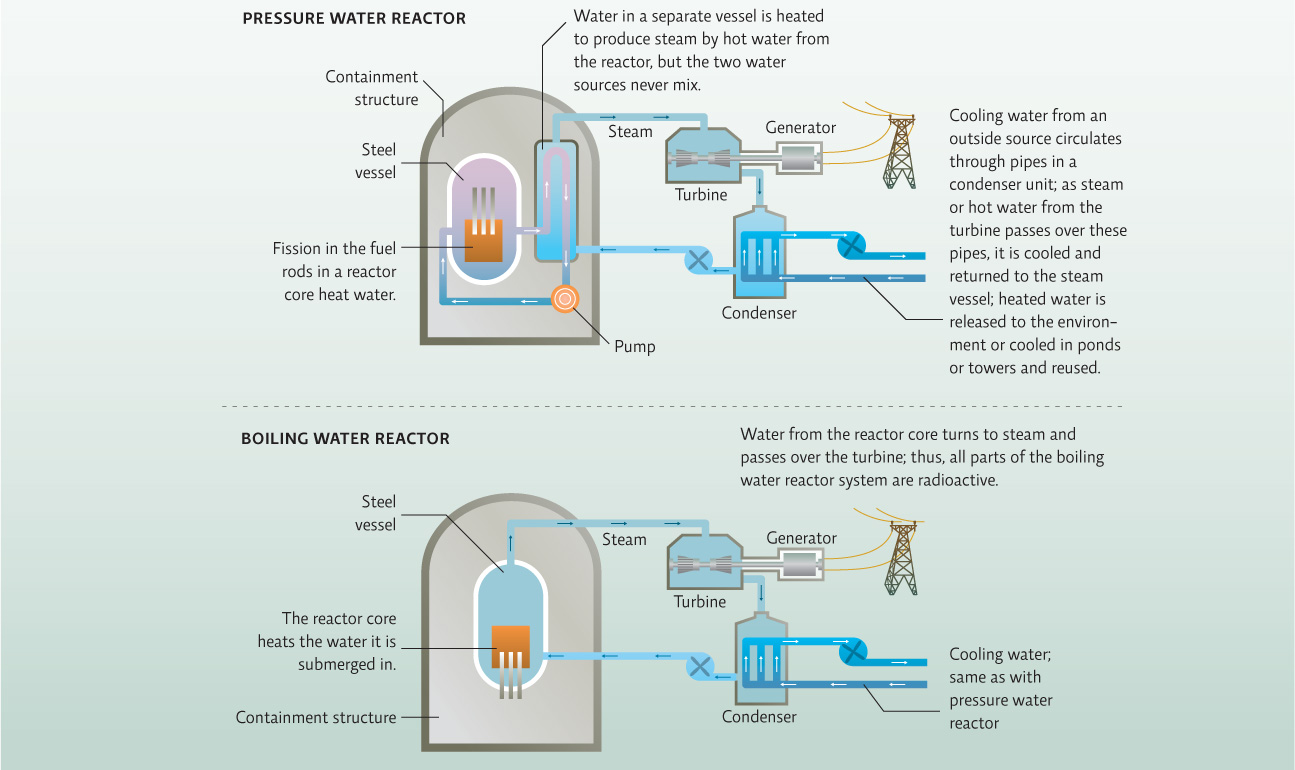The most common type of nuclear power plant is a pressurized water reactor (PWR); 265 of them are in operation around the world. The reactor at Fukushima is a boiling water reactor (BWR), one of 94 in the world. Both designs use fuel assemblies with control rods and use water as a cooling and steam source. Temperatures are kept “down” to about 1,400°C, well below the melting temperature of the uranium fuel (2,800 °C) and the metal casing of the fuel rods (2,200°C). If the reaction is not kept cool with circulating water, a meltdown can occur. Even if “shut down” by inserting all the control rods to absorb the neutrons and stop the chain reaction, heat will still be produced by the natural decay of the isotopes (they are not being split by bombardment; they are simply spontaneously losing particles).
